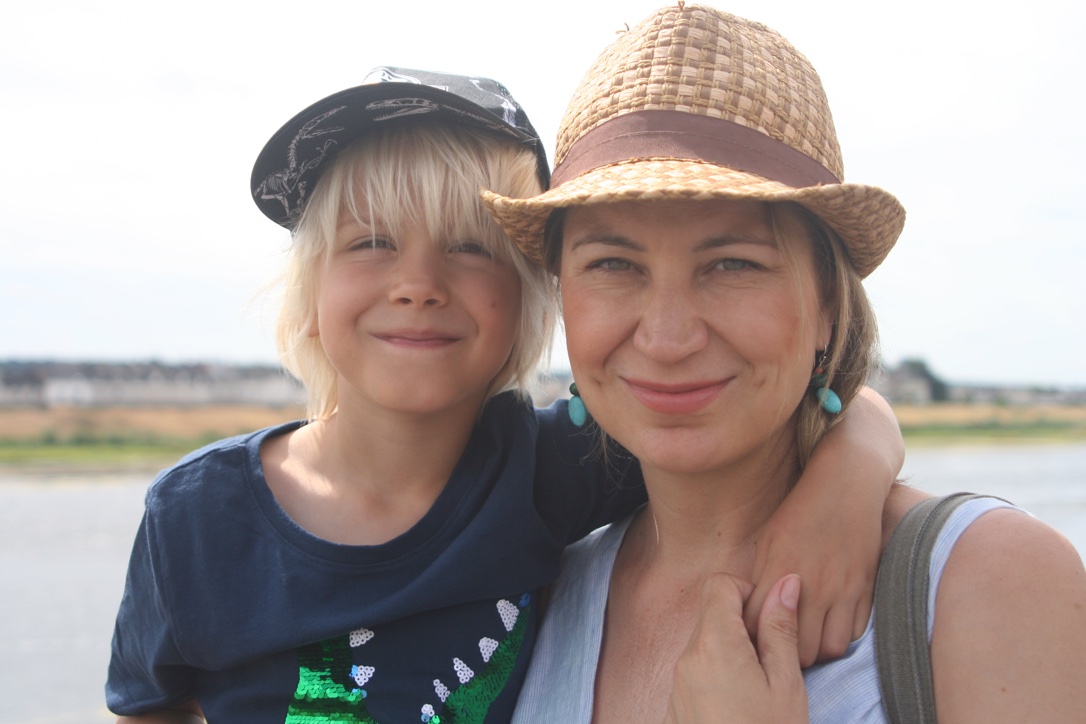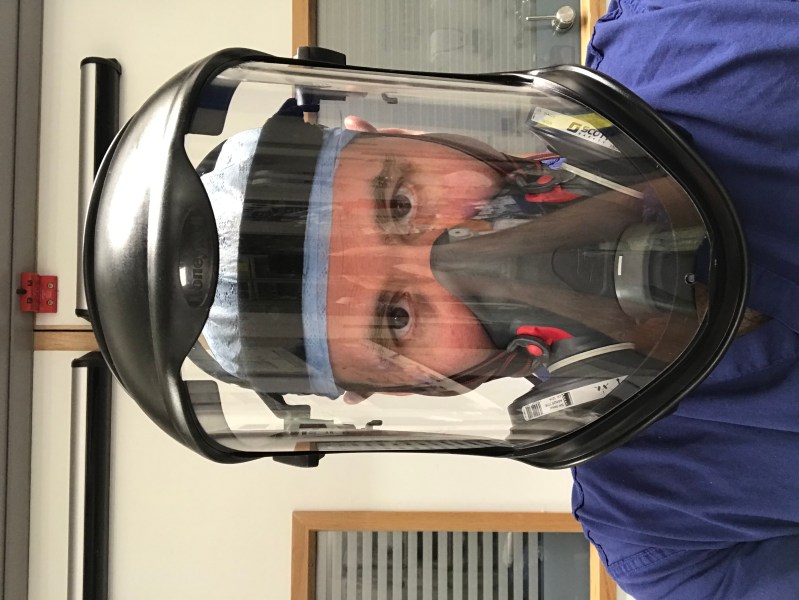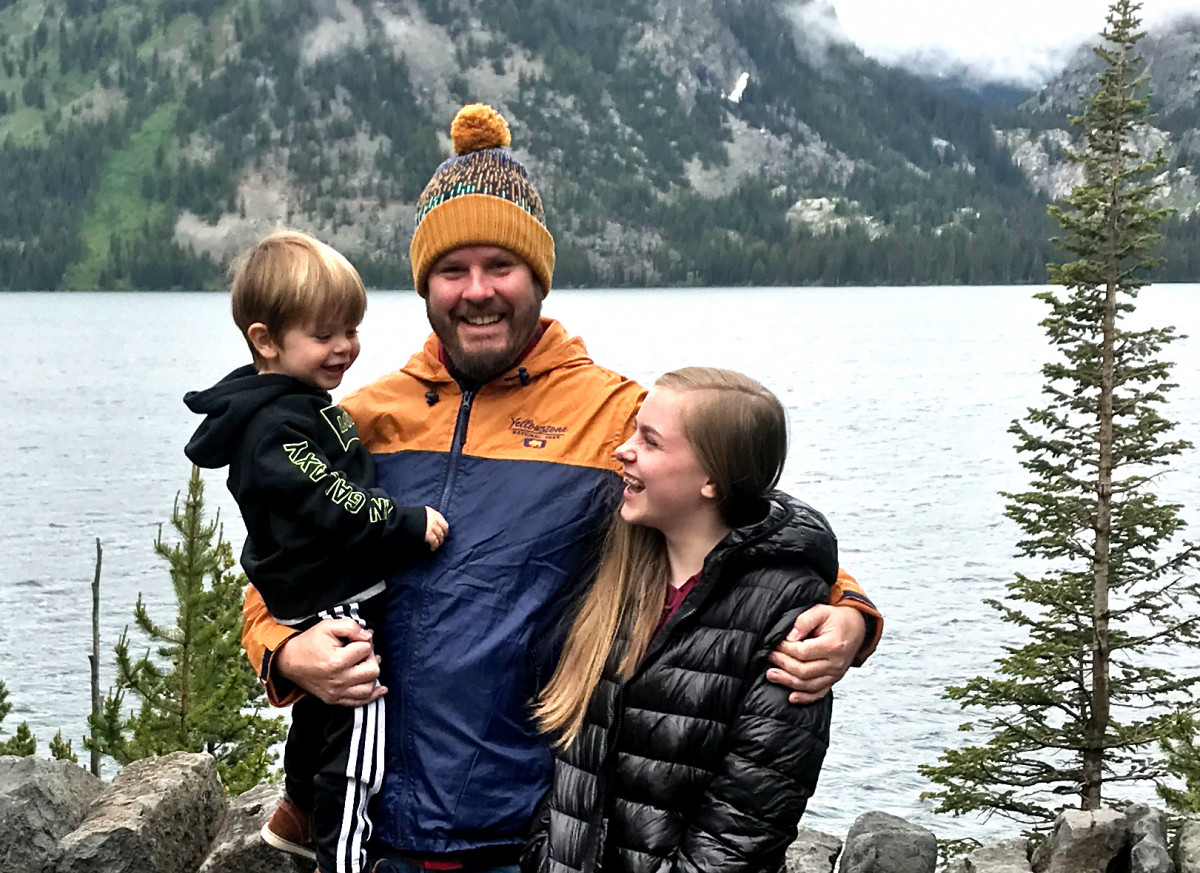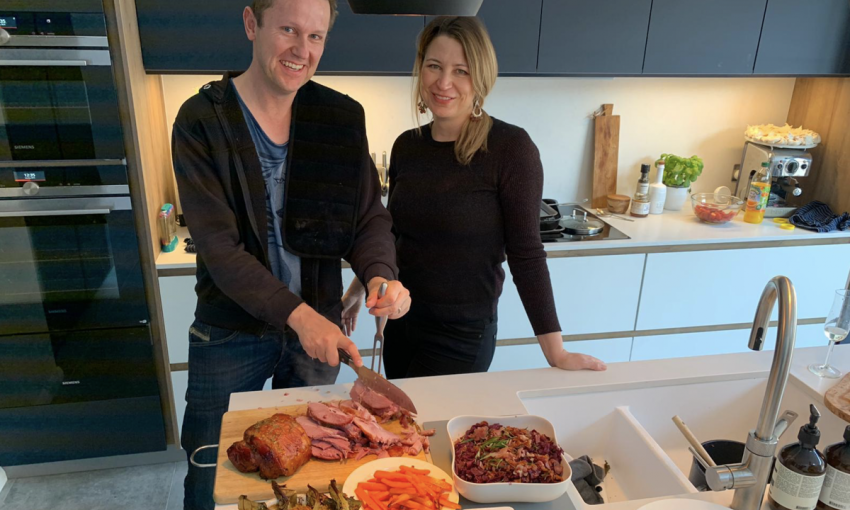From more family time to working on the front line, here's how these South Australian expats have been spending their days.
Expats at home – South Australians chat from overseas vol.6
Kat Boyd, UK
Where do you live?
We live in Putney, near the River Thames in leafy South West London. It’s quite an affluent area with lots of green spaces and the river of course. It is the start of the famous boat race between Oxford and Cambridge. We are only 5km to Chelsea, home of the famous shopping area Kings Road. We have great transport connections into London – a bus outside our door will get us to Piccadilly Circus (West End) in 40 minutes (that’s good for bus travel). Unfortunately, we are being told not to use buses at the moment due to C19. Many fatalities have involved bus drivers. So no shopping in the Kings Road for me!
What’s the feeling there at the moment?
We have just been told that we can move to 1m+ as of July 4. This means that pubs, cinemas and restaurants will open but with social distancing measures. We’ve been locked in since mid-March so this is a welcome announcement.
We are concerned of course, but not overly worried. We don’t wear face masks out and about, although many do. We are desperate to get our kids back to school. They are only taking reception (kindy), year 1 and year 6 at the moment. My son Jenson wont be back until September (if there are no further spikes of C19).
How have you had to adapt in your role at work?
I’m a naturopath and I run a Natural Fertility Clinic, Birds & Bees. It has meant that I’ve had to resort to Zoom only for my consultations. I think this is a positive thing as it works brilliantly and allows me to serve people from anywhere in the world. I’ve always offered that option though, but I think people now are more willing to choose this way of meeting me now. It has also focused me to adapt my product offerings to offer an online fertility report and online courses. I have had some client cancellations due to them being self employed and watching money. Lab testing services have had to be adapted too, but I have managed to find many at home testing kits that are really great for my clients and much cheaper than traditional labs.

How have you been spending your time away from work?
We live near a beautiful woodlands area which we have really been able to discover since lockdown. I spend my time walking with my son, we might take one of his books and read in the woodlands. I’ve reignited my childhood passion for climbing trees! He’s also taught me how to play chess and of course Minecraft.
Have you been connecting with family back here in SA?
In the beginning yes, I was really worried about my family as some members have pre-existing health conditions but they are safe. They just worry about me now.
Dr Thomas Smith, UK

How has your job been affected?
Normally I spend four days in the Centre for Human and Applied Physiological Sciences and one day in the operating theatre each week. When King’s released clinical academics to the NHS in March I joined a ‘surge’ rota in critical care at GSTT, specifically the mobile emergency rapid intubation team (MERIT). MERIT is responsible for all emergency COVID-19 intubations in the hospital, whether it’s in the emergency department, on wards or in intensive care. GSTT has been right at the epicentre of the UK pandemic, admitting hundreds of patients to regular and newly-created intensive care units. MERIT teams have been resident on-call 24-hours on both hospital sites.
What does the MERIT team do?
We’re called whenever a patient is critically ill and deteriorating and needs to be put on a ventilator. These patients will not survive without being intubated and ventilated, and can be challenging to manage clinically. Sadly, for those patients who ultimately don’t survive, we are the last people to speak with them. However, GSTT’s critical care survival rate for COVID-19 has been well above the national average, and for most patients it has been lifesaving.
How is this different from your usual clinical work?
In anaesthesia and intensive care we are used to dealing with unstable patients like this, but not on such a massive scale and not with all the added challenges of working in personal protective equipment (PPE). Aerosol-generating procedures like intubation are thought to carry the highest risk of serious illness for staff due to potential exposure to very high viral loads. Because of this we use advanced PPE and carefully modify our intubation and airway management techniques to minimise aerosol generation.
What has been the hardest aspect of this time?
What patients and families have had to go through has been horrific. A personal low-point was when my family all had COVID-19 – it sure is a horrible bug.
Have there been positive aspects?
I’ve really enjoyed getting to know clinical colleagues better and being part of the team with them. Also empty trains! It’s felt like I’m being chauffeured in my own carriage.
How are things at the moment?
As new admissions have fallen we’ve become more involved in airway management for other interventions, such as insertion of tracheostomies in intensive care patients. Now that we’re into a different phase I’m very happy I’ll be able to switch back to my usual job at King’s soon. I’m grateful to my colleagues for taking on my teaching responsibilities, and really looking forward to coming back and seeing them as well as my students, if only via Microsoft Teams for now!
Craig Farmer, USA

Where do you live?
Salt Lake City, Utah
What is the current feeling in Utah at the moment?
Depends who you ask! Personally, I am worried about the numbers, which are spiking after the government reopened the economy in recent weeks. We drove to get an ice-cream tonight, on a rare venture out of the house, but there were throngs not wearing masks or social distancing and it was unnerving. My family wears masks and there is talk of making them mandatory, which I support. The US is divided in many ways and this is becoming one more — those who believe COVID-19 is a real threat, and those who don’t. Me? I’ll continue to go with what the scientists say.
Utah businesses were doing it tough during the shutdown, but ingenuity is a strong point here and the community rallied around those who needed help, such as restaurants. The feeling in our household is that we are itching for our favourite things to happen again: festivals, restaurant visits, etc, but we have to wait it out.
How has your work been affected?
Being a creative director at a digital marketing agency, I am fortunate that much of my work can be conducted online. Our agency adopted a work-from-home policy as soon as the government issued shutdown orders, and a little while after that we could have a skeleton crew at the office, under a social distancing policy. With two kids it can get rowdy at home, so I relocated to the garage and enjoyed the mountain views from the open garage door, until the temp hit 35 degrees. Now I work at the desk at the foot of the bed, catch colleagues on Google Chat and Zoom, and out the window I can see my 13 year old daughter playing in the sprinkler with her little bro. Working from home ain’t all bad but it will be great to see my workmates again too. One day.
How have you been spending your time?
Making pizza! I bought a pizza oven and have been experimenting with making my own dough and sourcing nice ingredients. We staged a “French Week” in our house, have had tents set up in the living room, grew our own produce in the garden, and I am now adept at making all types of cocktails, and drinking them. I’ve had time to play more guitar, win at board games, and work on my graphic design “passion projects”. We have a fairly secluded river near our house and we ride our bikes down there, skim some stones and look for elk, skunks, beavers, rattlesnakes, chipmunks, catfish and whatever else might be hanging around down there.
How have you been connecting with family and friends back in SA?
Facebook Messenger and Instagram. The old Instagram is a great way to share photos and comments and keep people updated. I have a few friend channels on Messenger, and of course the most important thing is its “call” and video chat capability, to let my dear mum know we are ok and ask her about which of my favourite home cooking treats she’s whipped up lately. That’s one of the hardest things about being away: mum’s lasagne, lemon meringue pie, tuna patties, and the big one … rissoles. But she sends me the recipes, although it’s “never quite the same”. It’s also weird to see people drinking new brands of craft beer I’ve never heard of, and see photos of the new developments near my old workplace, the Festival Centre. Social media does manage to somehow reduce the sense of distance.
Are you a South Australian overseas? Email your lockdown experiences to zoe@salife.com.au
including free delivery to your door.



